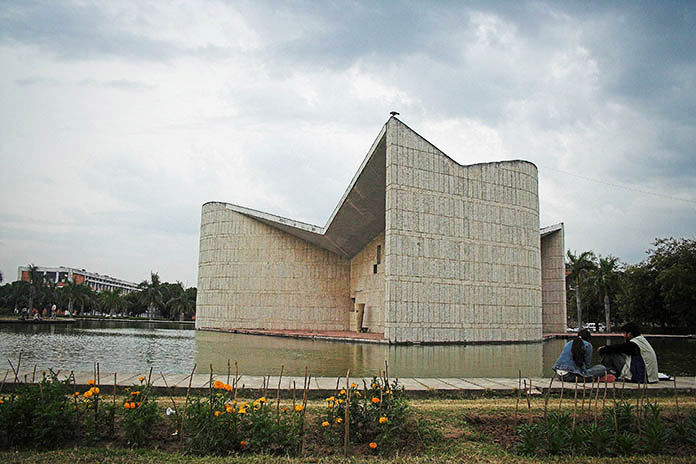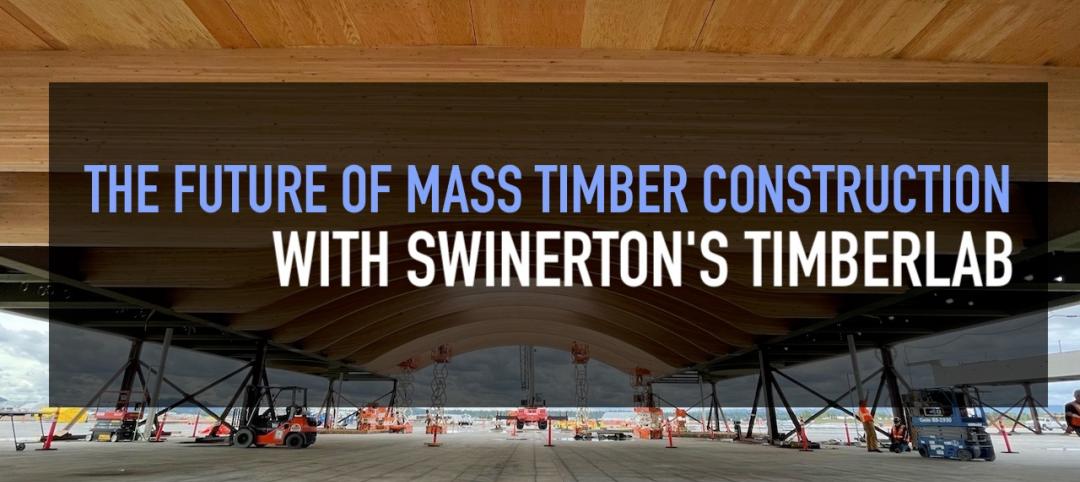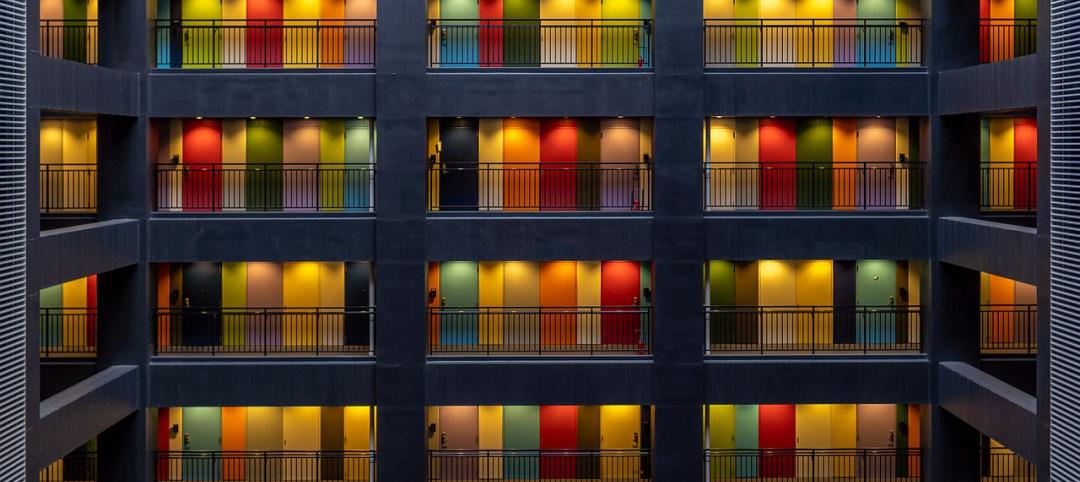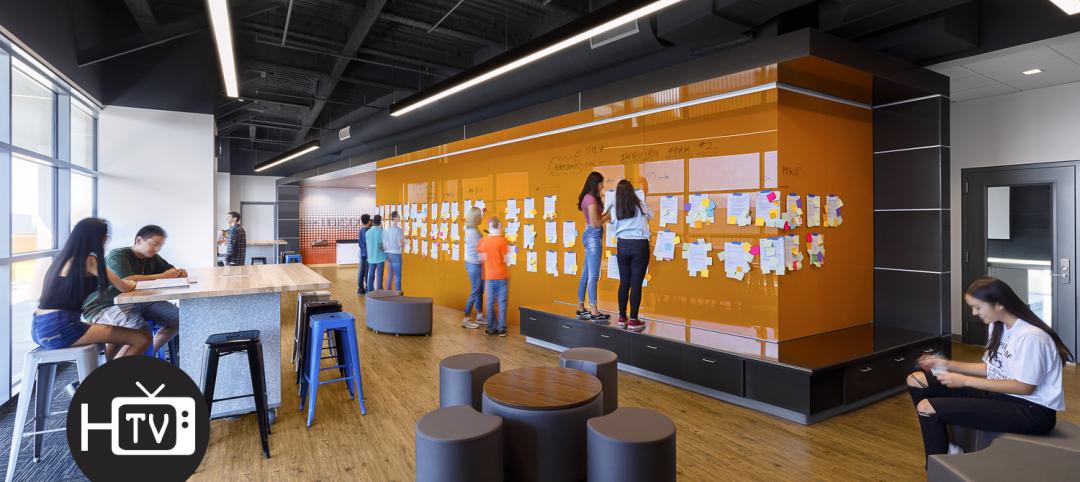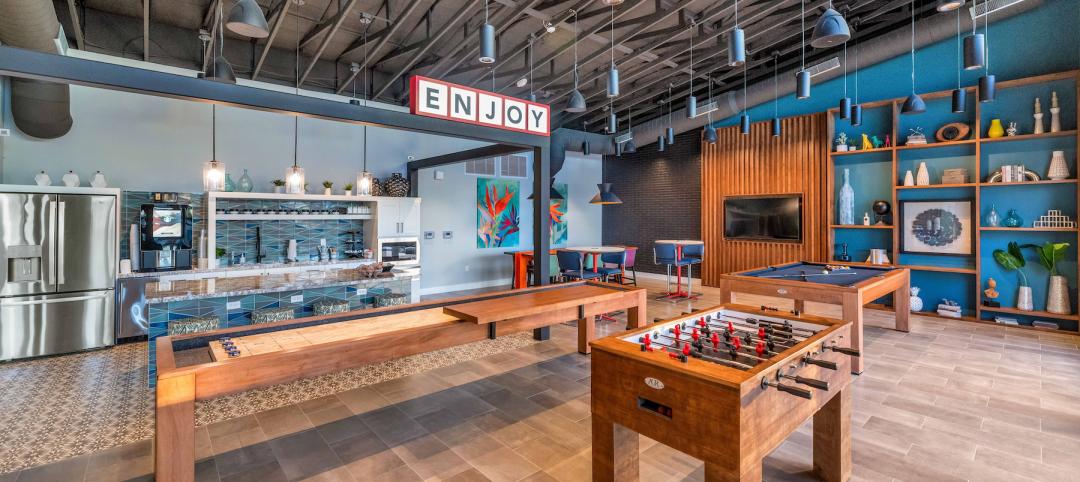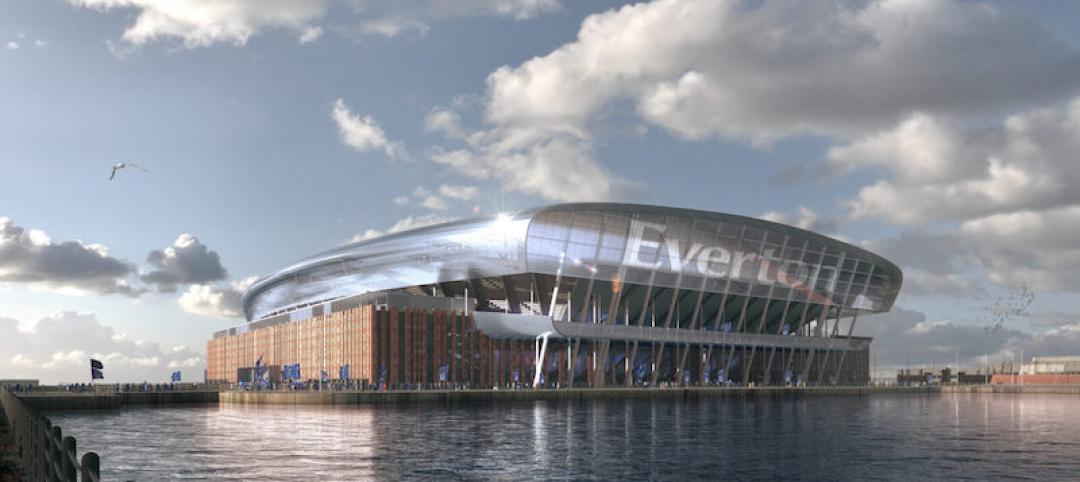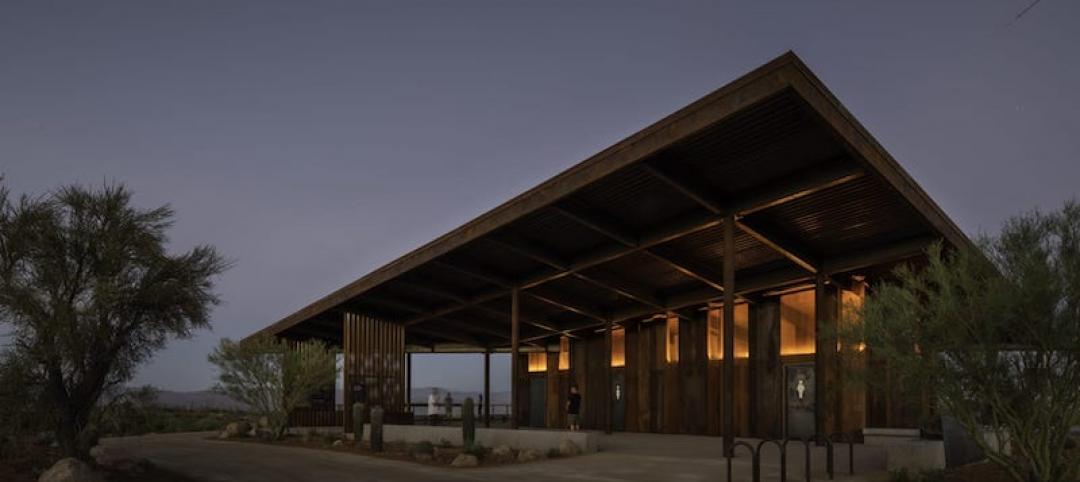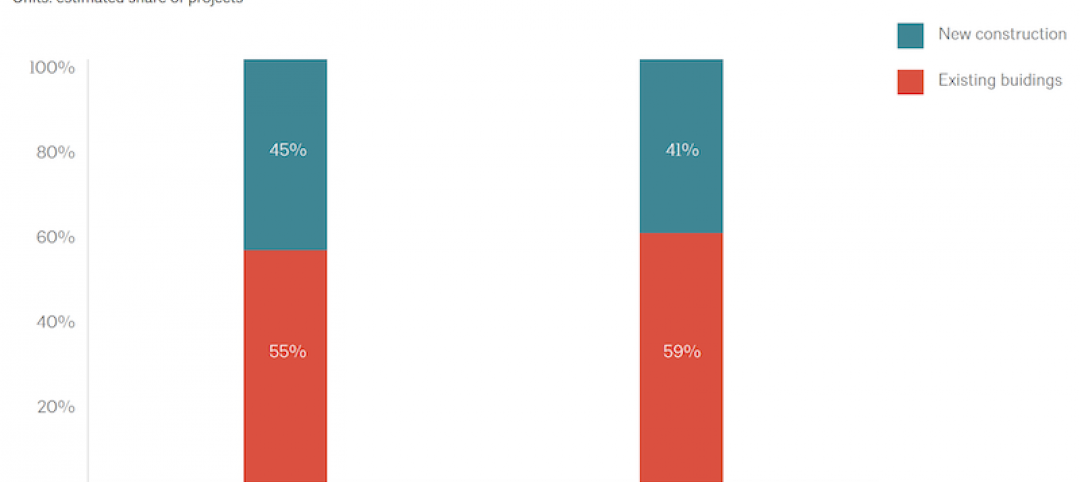The Getty Foundation announced a second series of grants for exemplary 20th century buildings as part of its Keeping It Modern initiative.
The latest grants for 14 projects in eight countries extend the program’s reach to new regions, ranging from Brazil to India. Each project is a model that reinforces the initiative’s focus on the conservation of modern architecture around the world.
The 14 projects selected to receive funding this year are:
• Frank Lloyd Wright’s Unity Temple
• Walter Gropius’ residence The Gropius House
• Erich Mendelsohn’s Einstein Tower
• Charles Rennie Mackintosh’s Hill House
• Pierre Jeanneret’s Gandhi Bhawan (Gandhi Center)
• João Batista Vilanova Artigas and Carlos Cascaldi’s School of Architecture and Urbanism at the University of São Paulo (FAUUSP)
• Marcel Breuer’s Saint John’s Abbey and University Church
• Gerrit Rietveld’s Schröder House
• Michel de Klerk’s Het Schip
• George Nakashima’s Arts Building and Cloister
• Giancarlo de Carlo "Collegi" buildings at the Università degli Studi di Urbino
• Paul Rudolph’s Jewett Arts Center at Wellesley College
• Jorge Ferreira’s Arthur Neiva Pavilion
• James Strutt’s residence The Strutt House
“Last year’s launch of Keeping It Modern emphasized that modern architecture is a defining artistic form of the 20th century at considerable risk, often due to the cutting-edge building materials that characterized the movement,” says Deborah Marrow, director of the Getty Foundation. “This new round of Keeping It Modern grants includes some of the finest examples of modern architecture in the world. The grant projects address challenges for the field of architectural conservation and will have impact far beyond the individual buildings to be conserved.”
The new Keeping It Modern grants focus on a number of pressing concerns within the conservation community, including the continued need for conservation planning for 20th century architecture, the call for models that demonstrate how to integrate conservation planning more comprehensively into the general stewardship of modernist buildings, and the lack of understanding about the aging and proper treatment of architectural concrete. The latter issue is being addressed in many of these projects.
“The use of concrete, while visually striking and radical for its time, has created a unique set of challenges for conserving some of the world’s most important modernist structures,” says Antoine Wilmering, senior program officer at the Getty Foundation. “Our new grants offer an excellent opportunity to advance research and conservation practices for this material. The accumulated knowledge that will result from the projects will be of tremendous benefit to the field.”
While the focus of Keeping It Modern is on conservation planning and research, exceptional projects that have the potential to serve as significant models for the preservation field may also be considered for implementation support. This year the Foundation is announcing the first Keeping It Modern grant at the implementation level to support the conservation of Frank Lloyd Wright’s celebrated Unity Temple in Oak Park, Illinois.
In the first year of Keeping It Modern, applications were by invitation only so that the Getty Foundation could demonstrate the type of project the initiative would support. The second year was an open call for proposals, and many high-quality projects were submitted for consideration. The projects were evaluated by an expert advisory committee that made recommendations based on a number of factors, including architectural significance, the strength of the work plan, international diversity, the potential to make a meaningful contribution to the field of conservation, and to serve as a model for conservation practice.
Keeping It Modern is part of the Getty’s strong overall commitment to modern architecture, as demonstrated by the Getty Conservation Institute’s Conserving Modern Architecture Initiative (CMAI), the extensive and growing architectural collections of the Getty Research Institute, and the 2013 Pacific Standard Time Presents: Modern Architecture initiative which focused on Los Angeles’ modern heritage. With these combined efforts, the Getty continues to advance the understanding and preservation of 20th century modern architecture.
Deadlines and criteria for the next round of Keeping It Modern applications will soon be announced on the Getty Foundation website atwww.getty.edu/foundation.
Related Stories
Wood | Jul 16, 2021
The future of mass timber construction, with Swinerton's Timberlab
In this exclusive for HorizonTV, BD+C's John Caulfield sat down with three Timberlab leaders to discuss the launch of the firm and what factors will lead to greater mass timber demand.
Multifamily Housing | Jul 15, 2021
Economic rebound leads to record increase in multifamily asking rents
Across the country, multifamily rents have skyrocketed. Year-over-year rents are up by double digits in nine of the top 30 markets, while national YoY rent growth is up 6.3%. Emerging from the pandemic, a perfect storm of migration, enhanced government stimulus and a hot housing market, among other factors, has enabled this extremely strong growth.
AEC Business Innovation | Jul 11, 2021
Staffing, office changes at SCB, SmithGroup, RKTB, Ryan Cos., Jacobsen, Boldt, and Adolfson & Peterson
AEC firms take strategic action as construction picks up steam with Covid openings.
K-12 Schools | Jul 9, 2021
LPA Architects' STEM high school post-occupancy evaluation
LPA Architects conducted a post-occupancy evaluation, or POE, of the eSTEM Academy, a new high school specializing in health/medical and design/engineering Career Technical Education, in Eastvale, Calif. The POE helped LPA, the Riverside County Office of Education, and the Corona-Norco Unified School District gain a better understanding of which design innovations—such as movable walls, flex furniture, collaborative spaces, indoor-outdoor activity areas, and a student union—enhanced the education program, and how well students and teachers used these innovations.
Multifamily Housing | Jul 7, 2021
Make sure to get your multifamily amenities mix right
One of the hardest decisions multifamily developers and their design teams have to make is what mix of amenities they’re going to put into each project. A lot of squiggly factors go into that decision: the type of community, the geographic market, local recreation preferences, climate/weather conditions, physical parameters, and of course the budget. The permutations are mind-boggling.
Industrial Facilities | Jul 2, 2021
A new approach to cold storage buildings
Cameron Trefry and Kate Lyle of Ware Malcomb talk about their firm's cold storage building prototype that is serving a market that is rapidly expanding across the supply chain.
Multifamily Housing | Jun 30, 2021
A post-pandemic ‘new normal’ for apartment buildings
Grimm + Parker’s vision foresees buildings with rentable offices and refrigerated package storage.
Architects | Jun 30, 2021
Perkins Eastman joins forces with MEIS
MEIS’ work on stadiums and entertainment centers spans the globe with state-of-the-art designs in the U.S., Europe, Asia, and the Middle East.
Architects | Jun 25, 2021
AIA announces Small Project Award recipients
Now in its 18th year, the AIA Small Project Awards program recognizes small-project practitioners for the high quality of their work.
Architects | Jun 24, 2021
Post-pandemic, architects need to advocate harder for project sustainability
An AIA-Oldcastle report looks closer at the coronavirus’s impact on design and construction


